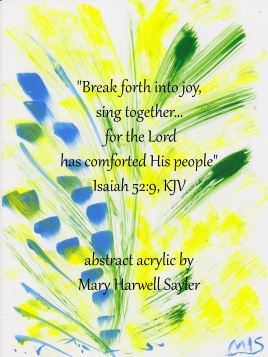. A composer composes a tune or score of music.
. An artist considers the composition of a sketch or painting.
. A writer writes in a composition notebook.
. A poet composes a poem.
And, if we hope to be the best possible poet, writer, artist, or musician, we might need composure to compose ourselves!
The Thesaurus inherent in word processing software offers these synonyms for “compose”:
- Invent
- Create
- Unite
- Combine
- Make
In each of the arts mentioned, our work consists of the following factors we can connect, make something of, or combine in inventive ways:
Composition – A particular arrangement of notes, syllables, objects, or words can be boring, pleasing, or, preferably, breath-taking.
Line – A line of musical notes, a line of poetry, a line drawn on canvas or paper provides coherence to the work as a whole. The direction of those lines affects the artwork too. For example, a visual artist might draw a diagonal line to depict dynamic movement, a vertical line to show stability, or a horizontal line to evoke calmness.
Rhythm – The tempo, beat, or pace of a piece of music is generally obvious to our ears, but the musicality of a poem or the flow of lines and shapes in a painting have rhythm too – rhythm as vital as a person’s pulse.
Tone – The sound of music and the attitude suggested by a poem or painting heightens the tone of voice, while contrasts of light and dark add tonal value. With these elements at play, the work might come across as calm, lively, moody, maudlin, or an explosion of anger, grief, or joy.
Color – Colorful words in poetry occur best as strong nouns that readers can envision and active verbs that set those pictures into motion. In a painting, one color or hue highlights, complements, or contrasts with another. In music, jazz is often called “the blues.”
Texture – Since texture adds layers of interest and/or roughs up an otherwise smooth surface, we likely hear it in music with a change of tempo or a change of the tension between harmony and discord. For more about texture in art and poetry, see the blog post, “How can a poem have texture?”
Theme – Each of the arts addresses or expresses topics that will be interesting or relevant to most people – subjects such as birth, death, faith, hope, love, infinity, and everything in between. Often, creative people have life themes recurring in their work. In mine, the same basic themes keep coming up: “God is good and can be trusted to work things out for our good” and “Everyone on earth needs to be treated with respect.”
Techniques – Sometimes artistic people prefer to play by ear or wing it, rather than learning the technical tools at their disposal. For poetry or other forms of writing, a good grasp of grammar and a wealth of words will help, whereas visual artists need to know the effects of brushes, surfaces, and other utensils, and, musicians, lyricists, and composers need to know how to read music. These tools take only a little time to learn but a lifetime to utilize and open up more opportunities.
Similarly, a poet needs to know how to read a poem and an artist to read a piece of art in order to fully experience, enjoy, and learn from the work of someone else. All of us need to study our favorite forms or genres, of course, but studying works you never thought you’d attempt yourself can be especially insightful and delightful.
Most likely, other similarities occur in the arts, and if you have some to add, please do in the Comments section on this page. Thanks. And, regardless of your artistic interests, don’t forget to experiment, practice, play, and have fun.
Posted previously on the Poetry Editor blog by Mary Sayler, poet-writer, and maybe-someday artist.
